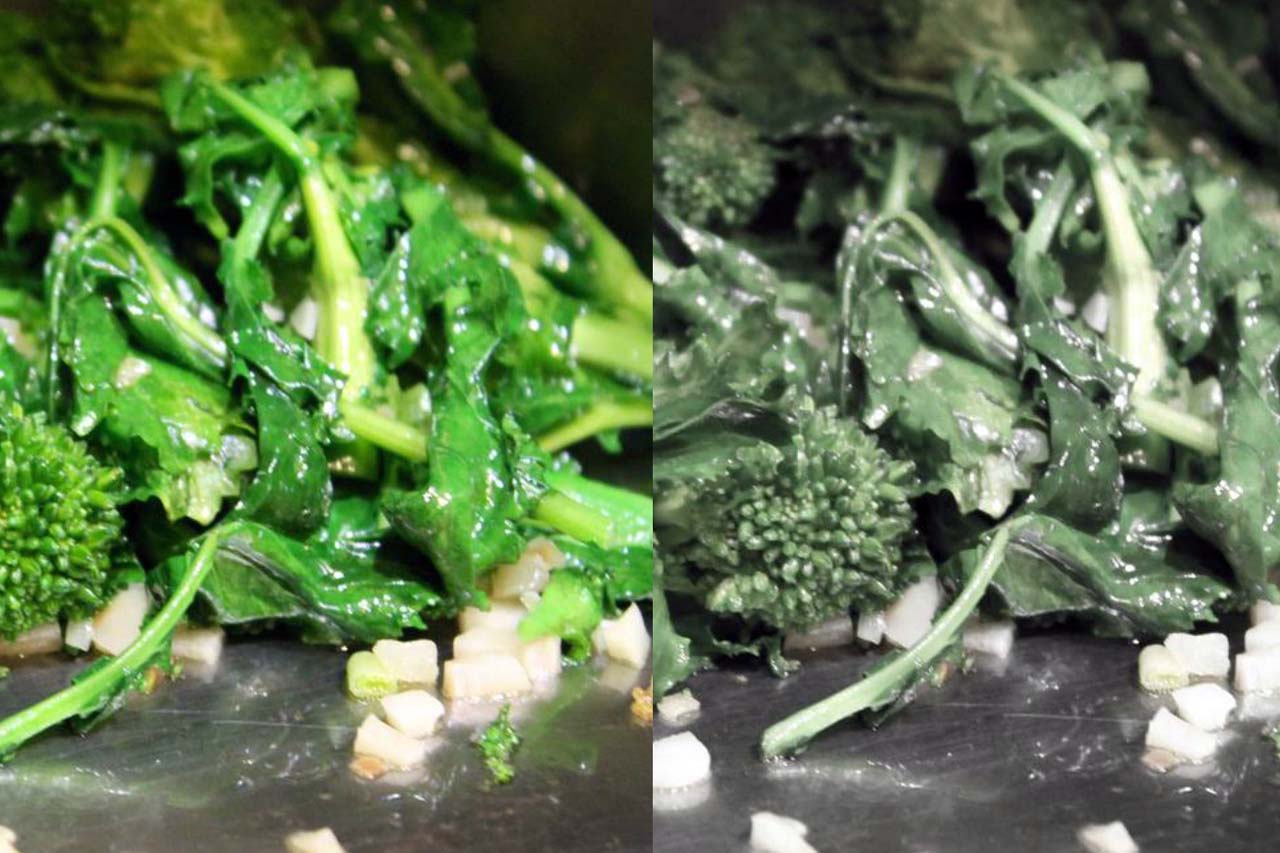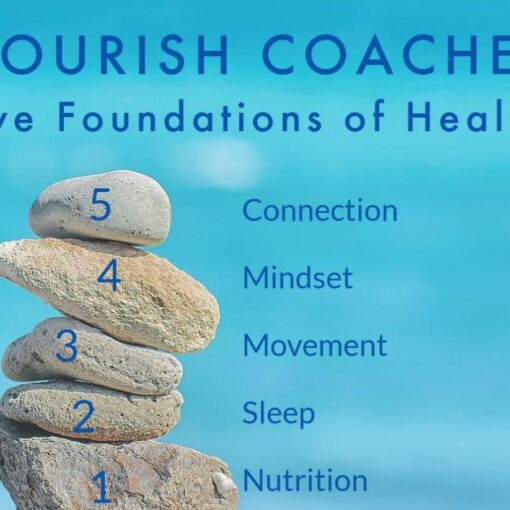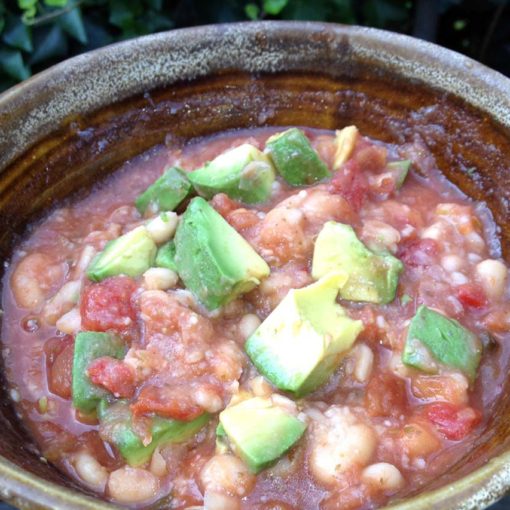Podcast: Play in new window | Download (Duration: 13:11 — 11.4MB)
Subscribe and don't miss an episode! Apple Podcasts | Spotify | Android | iHeartRadio | Deezer | RSS
What color do you cook your green vegetables?
Nourish Noshes Podcast: 50 Shades of Green
At the little family-owned local Italian deli that I every so often buy prepared foods, my daughter recently asked if she could get their broccoli rabe. This is a vegetable that I make regularly at home. I asked her why, since I believed my broccoli rabe was far better than any you could buy. She shrugged her shoulders and said, “It’s just so good.” So, we bought it so I could see what made theirs better than mine in her eyes.
Immediately, I noticed the color of theirs was a dull, gray-green, not the bright green of my blanched and quickly sauteed broccoli rabe. I tasted it, and discovered it fell apart in my mouth, mingling with the garlic and oil. It was good, but I still preferred mine. “It’s overcooked,” I said to my daughter. She shrugged again. And then she asked, “is that bad?”
For the first time, I actually thought deeply about that question.
I always assumed that overcooked vegetables were nutritionally depleted, having all the vitamins and minerals cooked away. But, was this true? Did I ever actually read this or hear about this from any kind of authority on vegetable nutrients? I know I’ve read the arguments of raw vs. cooked and am aware that many vegetables have nutrients and enzymes that are cooked away, but at the same time have other nutrients that are “released” by cooking, making them more bioavailable. But, surprisingly, I didn’t think I ever actually researched if overcooked vegetables are any more depleted then just plain cooked.
So, I looked into it. In Rebecca Wood’s The New Whole Foods Encyclopedia, she writes, “Yes, prolonged cooking at high temperatures destroys enzymes and water-soluble vitamins. Moderate cooking, however, does not destroy carbohydrates, proteins, fatty acids (omega-3s excepted), fat-soluble vitamins, minerals, or micronutrients. Most of our ills today are not from a deficiency of enzymes and water-soluble vitamins.” I liked that last sentence. It’s true. Most of us aren’t. Most water soluble vitamins like vitamin C and B vitamins are prevalent in even a somewhat healthy diet. If you eat fruits and vegetables regularly (5-7 servings a day), you’re getting enough.
According to The World’s Healthiest Foods by George Mateljan, one of our go-to books at the office, nutrients are preserved by cooking vegetables only a short time. By cooking greens too long, chlorophyll is lost along with many nutrients, including vitamins, minerals and phytonutrients. After cooking green vegetables for just seven minutes, magnesium from the center of the chlorophyll molecule turns into a drab greenish-gray hydrogen molecule (called pheophytin). This signals a loss of nutrients.
Chlorophyll is what makes green vegetables green and also a large part of what makes them so healthy. Chlorophyll has the ability to help increase red blood cell production. That’s because its chemical structure closely resembles hemoglobin, an essential protein in our blood. And a high red blood cell count helps transfer oxygen to our cells more efficiently. There are other benefits as well, including lowering the risk of cancer, boosting immunity, fighting free radicals, slowing aging and managing an overproduction of yeast in the body. Wow! Pretty important to eat your (bright) green vegetables, don’t you think?
So, that answers the question.
Yes, overcooking vegetables is less healthy than having them bright green. But, overcooked vegetables are better than no vegetables at all. We cook vegetables often because they taste better that way, and if they taste better, we’re more likely to eat them. If it’s the difference between eating vegetables or not, then go for the overcooked vegetables.
However, if you really want the most nutrient dense vegetables, then get them fresh from a local and reputable farm, or better yet, your backyard. Cook them quickly, and cook them just enough so that they still retain their bright color. Honestly, unless you’re eating frozen or fresh-picked local veggies, they’ve already lost a lot of their nutrition before they even get to the supermarket, especially if they were shipped across the country or from another country. To add fuel to the fire, many studies have shown that conventionally grown foods, no matter where they are grown are sowed in soil that is depleted of nutrients and have little nutritional value anyway.
Still, eating vegetables, overcooked or not, conventional or not, is better than none at all. They are part of a whole foods diet that we base our philosophy on. If you want to step it up and make your food choices healthier, then cook your vegetables a bit less, retaining that beautiful green. Make them local and organic, and eat many of them.






